ARMENIA
Children of Artsakh
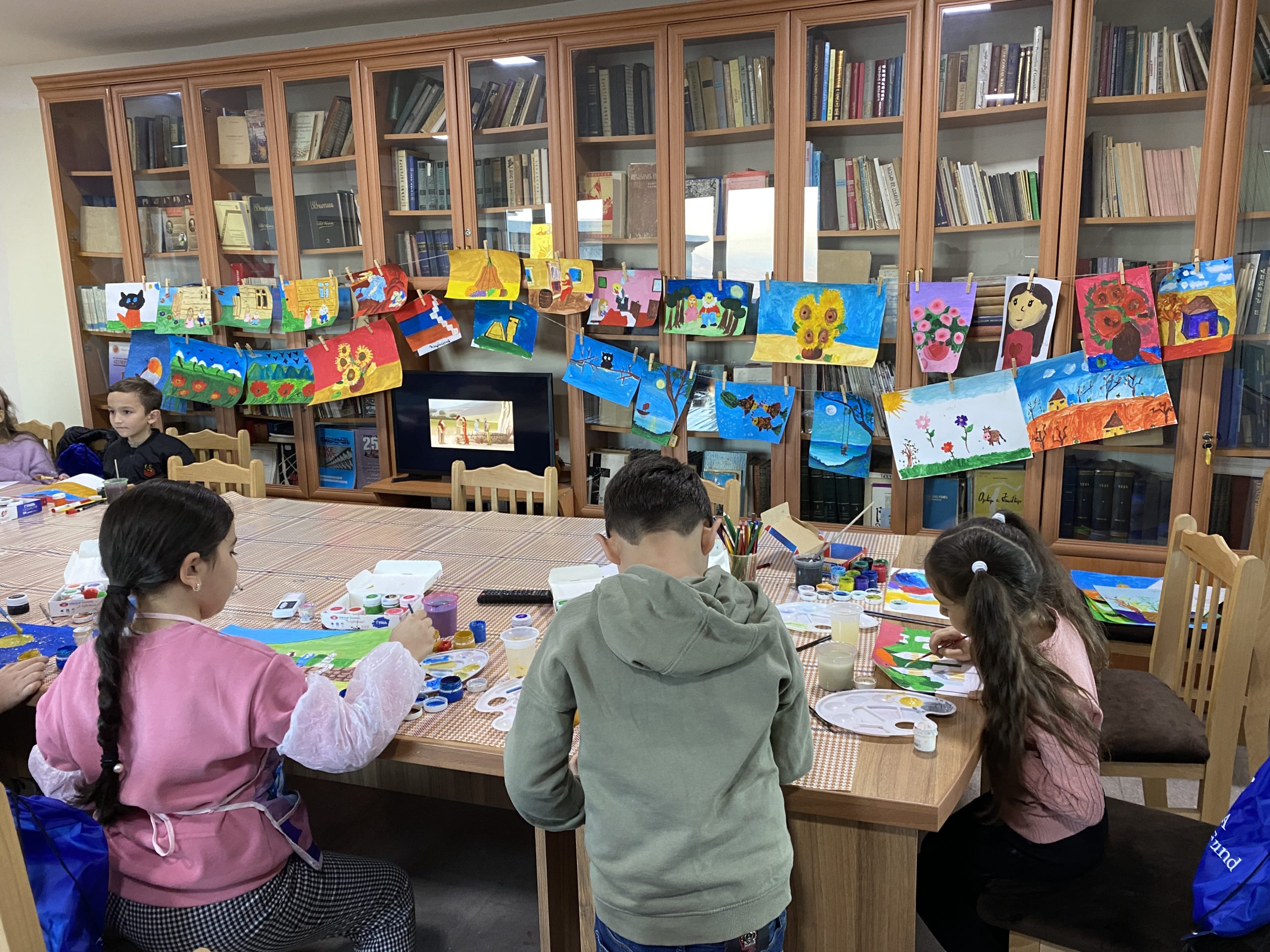
During the height of the Artsakh War in November 2020, the Hamazkayin Central Executive launched an art therapy program called Children of Artsakh with financial support from three Hamazkayin regional executives (Eastern USA, Western USA and Canada). Executive Director of Hamazkayin’s Artsakh office Hermine Avagyan, who was herself displaced with her three young children, organized the program for the children of Artsakh who had fled to various regions of Armenia during the war. Thanks to Avagyan’s tireless efforts, the project was created to meet the cultural, social and psychological needs of these displaced children.
Most of these children were living in very cramped and sometimes unhealthy quarters with their mothers, grandparents and extended families while most of their fathers (in fact, almost all of their male relatives) were on the front lines in Artsakh. The children were not attending school and there were no programs for the children to have social, educational or any type of interaction with other kids. These children were living day in and day out absorbing the fear and anguish of the adults in their lives with the additional constant worry about the well-being of their fathers and male relatives. There were no activities being offered to these kids so at the very least they could come out of these traumatizing conditions for a few hours a day. This is the backdrop as the Children of Artsakh program was initiated.
At first, it was challenging to find and gather these children scattered throughout various regions of Armenia. In the chaos and overwhelming pressures of the war, it was also a delicate process to convince the mothers of these children to participate in these programs. Hamazkayin’s Artsakh office team, with the assistance of displaced Artsakh teachers, began searching for children whose families had sought refuge in Yerevan hotels. They also announced the launch of the project on social media. As word spread, the number of participants grew by day. The Children of Artsakh program in Armenia began in Yerevan, Abovyan and Dilijan and continued until May 2021. As displaced families started to move back to Artsakh, the program followed and was relaunched in earnest in various regions of Artsakh itself.
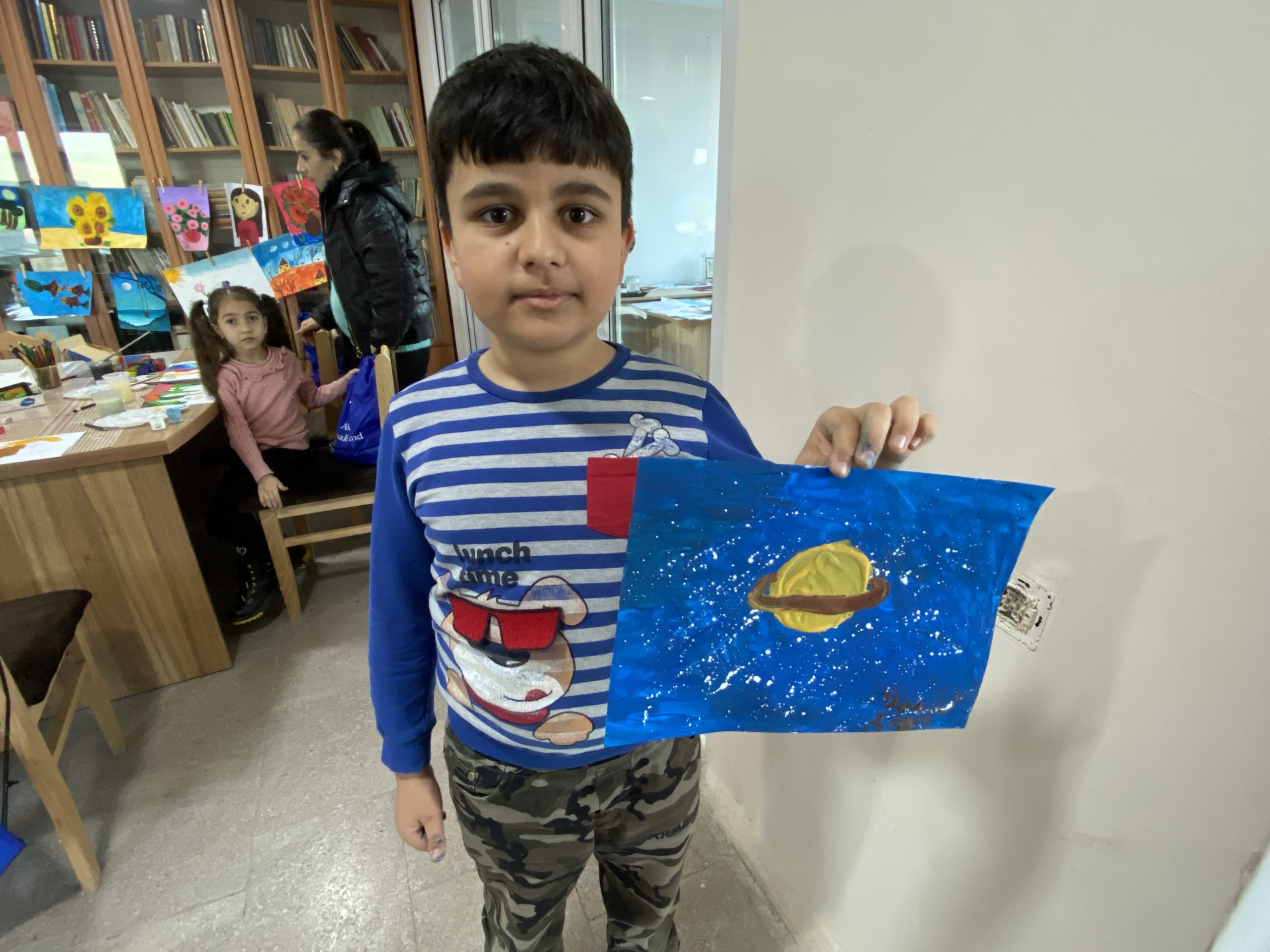
Initially, the purpose of the program was art therapy. No other organization was focused on the psychological well-being of these children as they endured the hardships of war, including having their fathers on the frontlines. Most of these children were living in less than desirable conditions with the adults around them understandably consumed with worry, grief and anguish. Avagyan and Hamazkayin Central Executive felt this program was vital to safeguard what could be salvaged of these children’s psychological well-being.
“During the war, when we started the program in Armenia, the biggest challenge was to help the children cope with the trauma of the war. Most of these children were depressed and stressed which was reflected in the dark and ominous drawings they produced. With therapy and continued focus on their psychological well-being, and of course with the passage of time, the children began to choose brighter colors and produced more colorful drawings. Thanks to the great team of teachers and psychotherapists that Hamazkayin brought together, the children regained some of their cheerful and optimistic outlook,” recalled Avagyan.
In January of 2021, the program relaunched in Stepanakert as most families from the capital city were the first to return to their homes. From January to May of 2021, the program ran concurrently in Armenia and Artsakh. Today, Children of Artsakh operates exclusively throughout Artsakh proper, including villages in the regions of Martuni and Martakert most of which now sit on the line of contact with Azerbaijani soldiers looking down on these villages.
Children of Artsakh has expanded its programs beyond art to include Armenian traditional dance, chorus and crafts for children ages 8-14. The program has active groups in Stepanakert, as well as in the villages of Gaghartsi, Ashan and Majgalashen in the Martuni region and the village of Maghavouz in the Martakert region. In addition, the Hamazkayin Artsakh office also runs a tutoring program for high school seniors who are preparing to take their college entrance exams. Prior to the war, these students would have resources dedicated to them by their schools or even their own families’ abilities to hire tutors in order to prepare for these exams. As a consequence of the war, many of these services are no longer available and the families themselves do not have the resources to hire private tutors. As an extension of the Children of Artsakh program, exam preparation classes are provided in Stepanakert. One program is for the students in Stepanakert, and the second program is for students who come from villages across Artsakh to Stepanakert every week to take advantage of these classes. Without exception, all the students who participated in this tutoring program last year passed their exams and were accepted to university, and the teachers are confident that the bright students in the program this year will also succeed.
In addition to the various art classes, Hamazkayin’s Children of Artsakh program also takes the children on educational field trips to museums and to watch plays in theaters and other cultural adventures. Hamazkayin’s Artsakh office also organized two art shows featuring over 100 pieces of work created by the children of Artsakh. These art exhibits were well received by communities in Armenia and Artsakh. In addition, they provided yet another opportunity for these children to have some semblance of normalcy following the trauma they endured, and continue to endure, as a result of the attacks on our homeland. There are now preliminary plans underway to organize a dance and music festival to bring all Children of Artsakh participants together to perform in various parts of the region.
Early on, Hamazkayin’s Artsakh office decided that in addition to helping children cope with the trauma of war, they would also find ways to help displaced families. As a result, most of the teachers Hamazkayin hires for the Children of Artsakh program are from displaced families. The teachers are from Shushi, Hadrut, Berdzor and other regions that were surrendered to the enemy. In this way, displaced families who have lost their ancestral homes and more are able to earn a living to support their families.
“It was very important to Hamazkayin that the teachers involved in this program come from the most needy families who today are obviously the families from the surrendered territories who have lost their homes and livelihoods,” said Avagyan.
The Armenian Cultural Association of America (ACAA) Artsakh Fund supports the Hamazkayin Children of Artsakh program by providing financial resources so that the program can continue to serve the needs of the bright children of Artsakh. ACAA board member Ani Tchaghlasian visited Artsakh in early December to deliver art and school supplies to every participant in the Children of Artsakh program. Over 250 backpacks packed with various age-appropriate art and school supplies were delivered.
“It was crucial for the ACAA Artsakh Fund board members that the children of Artsakh and their families, as well as the teachers and program directors, feel that they are not alone in these trying times in our homeland,” said Tchaghlasian. “It is with great pride and humility that we acknowledge the courage and steadfastness of our compatriots in Artsakh who, with determination and will, remain in our ancestral homeland,” she continued.
Tchaghlasian, accompanied by AYF-Eastern Region Central Executive member Alex Manoukian, ANCA communications director Elizabeth Chouldjian and Hamazkayin Artsakh office program manager Tiruhi Gasparyan visited with every Children of Artsakh program. The visits began at the Boarding Institution No.1 for the Care and Protection of Children in Stepanakert. Children of Artsakh provides an arts program for these children with disabilities. In Stepanakert, they also met with the children in the arts program and the students who participate in both of the college prep classes. In addition, the team visited with the children who participate in programs in Gaghartsi, Ashan, Majgalashen and Maghavous. They also met with the principals of the schools in those villages and the dedicated teachers of the Children of Artsakh program.
“It was inspiring to meet with these children and teachers who continue to learn, teach and live willfully while staring down the barrels of Azeri guns,” said Manoukian.

These gifts were made possible by funding provided by the ACAA Artsakh Fund. In addition, a generous donation was made by the Salt and Light Youth Group of St. Sarkis Armenian Apostolic Church in Douglaston, New York, led by the indefatigable Fr. Nareg Terterian. The Salt and Light participants raised funds and made cross bracelets for the children of Artsakh which were well received. The kindhearted students of Holy Martyrs Armenian Day School, guided by their dedicated principal Seda Tavitian Megherian, also raised funds for this project. In a most touching gesture, the students also made handwritten cards with lovely messages to the children of Artsakh. Several individuals and families also generously supported this program for which the ACAA Artsakh Fund and Hamazkayin are truly thankful.
Hamazkayin Central Executive intends to continue the Children of Artsakh program, as it has provided hope and healing for the beautiful children in our homeland. There are requests from mayors and city councils from many border villages in Artsakh requesting that Hamazkayin also provide this programming in their villages. “The Hamazkayin Artsakh office fields calls several times a week from different village leaders requesting that we provide similar programming for their village as well. It’s a matter of resources. We could expand the program very quickly, providing an outlet for the children and employment for displaced teachers and bringing a great and needed service to our villages,” reported Avagyan.
If you would like to help ensure the continued success of the Children of Artsakh program, you can make your tax deductible donations to the ACAA Artsakh Fund with a designation to Children of Artsakh in the notes.

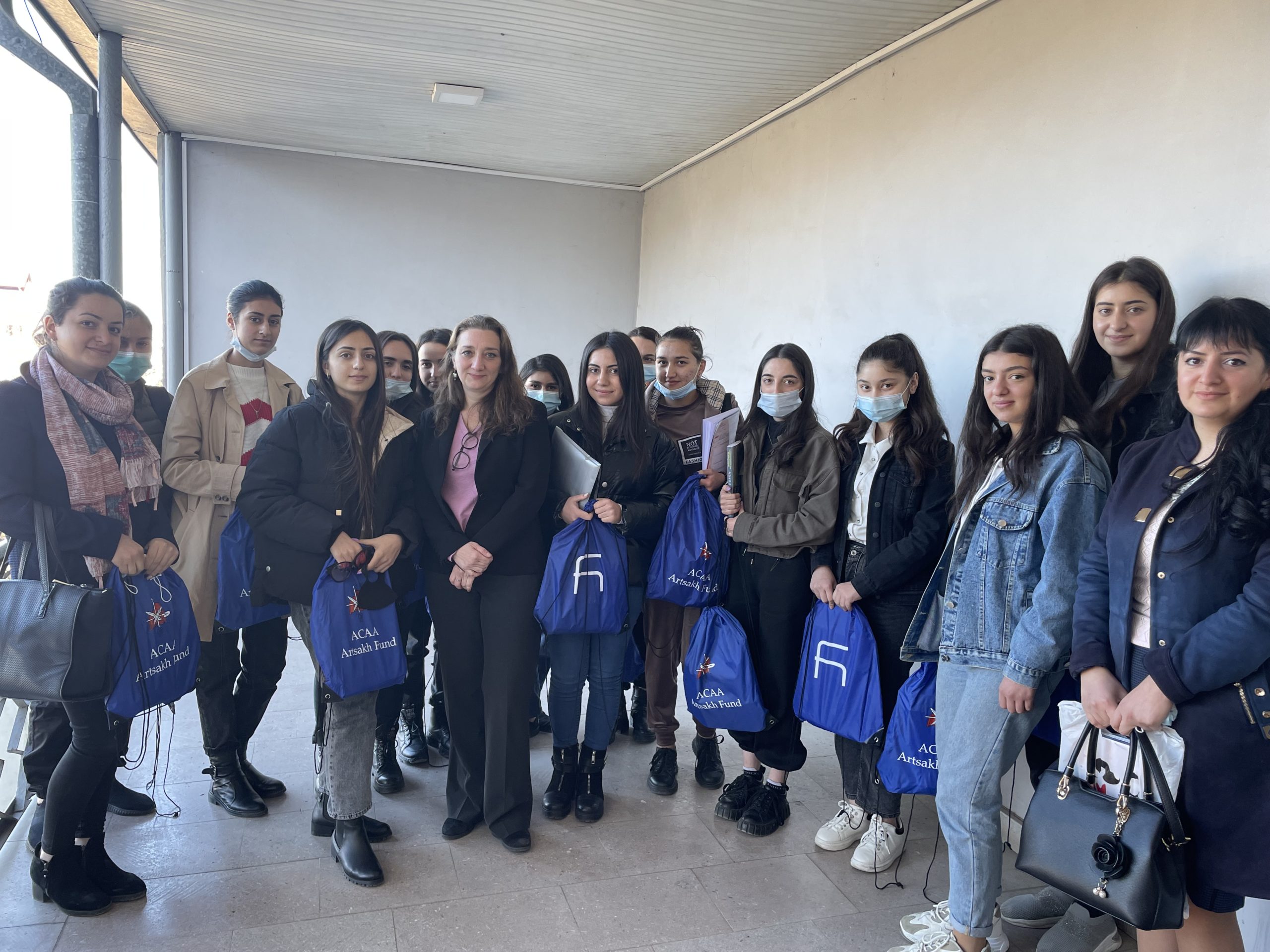

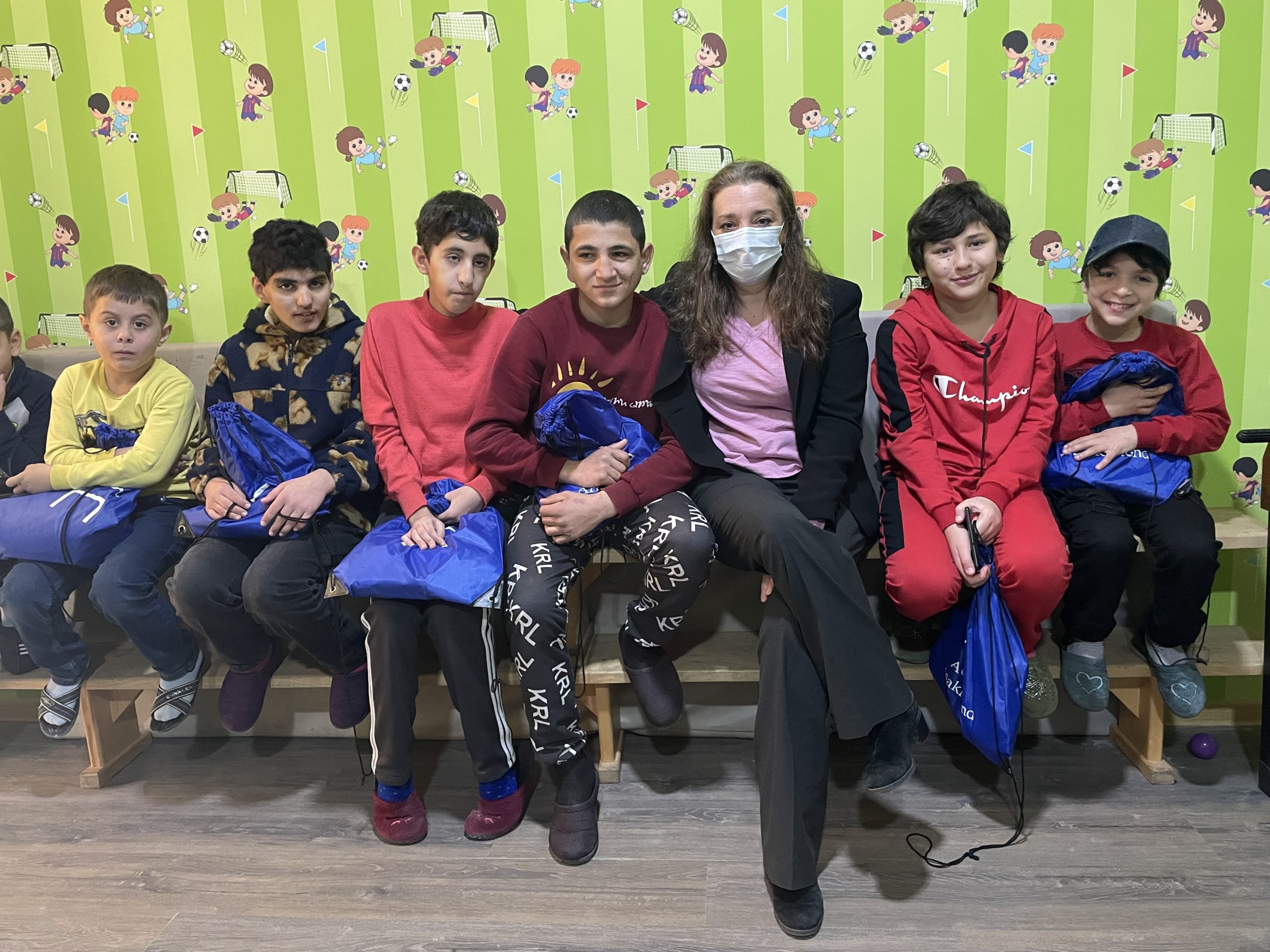


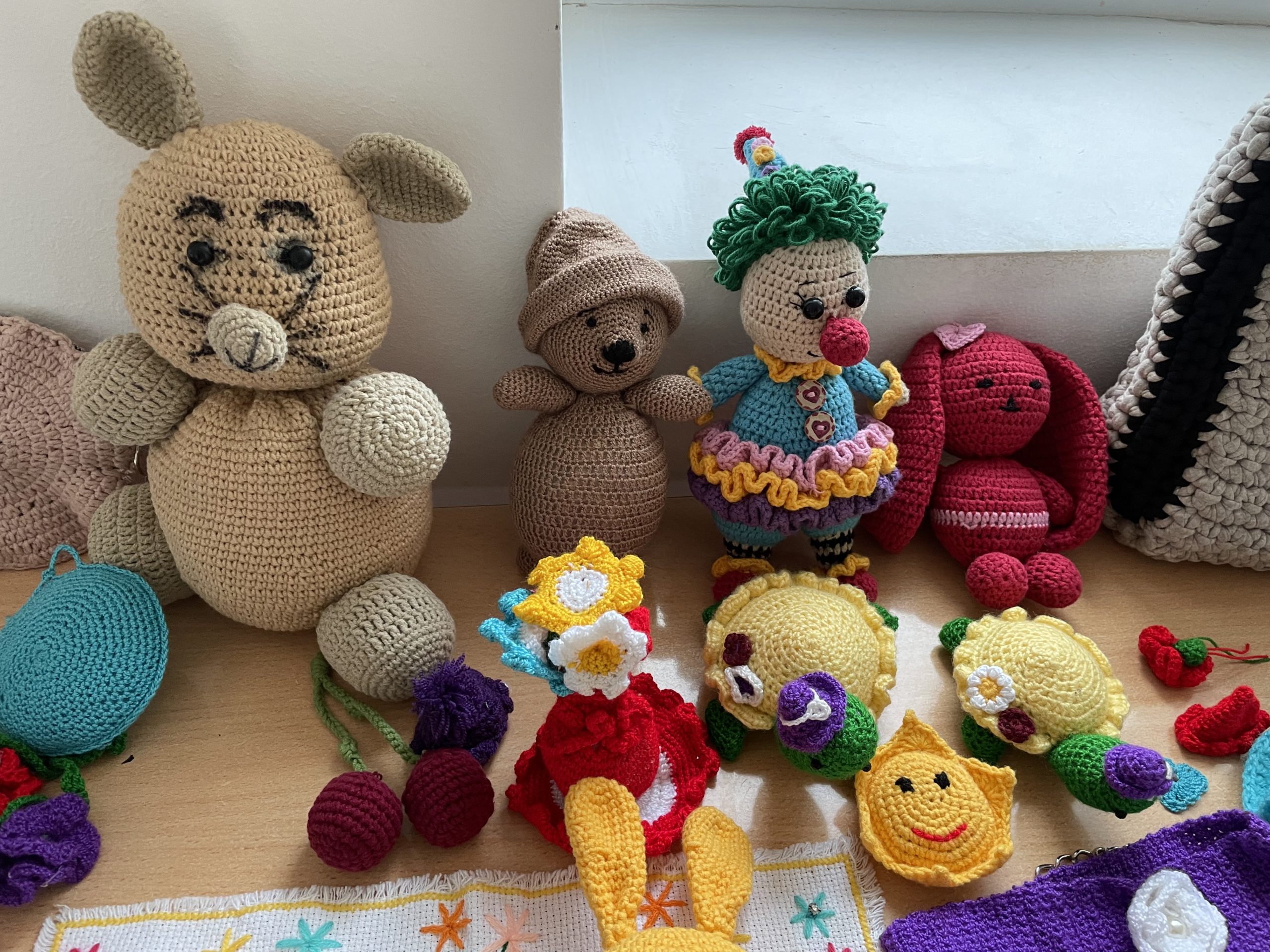


No comments:
Post a Comment